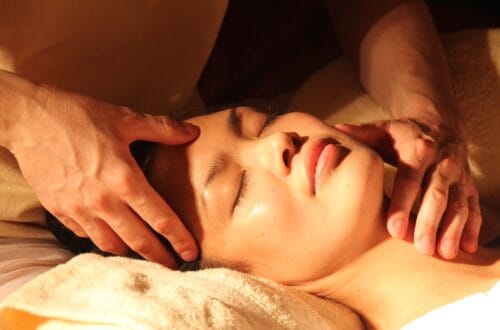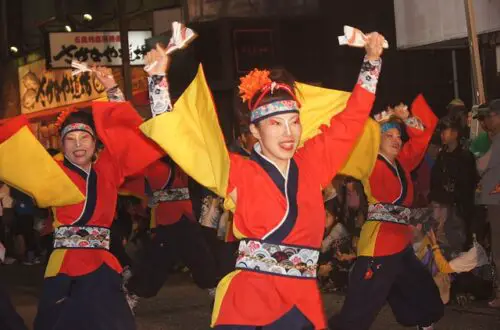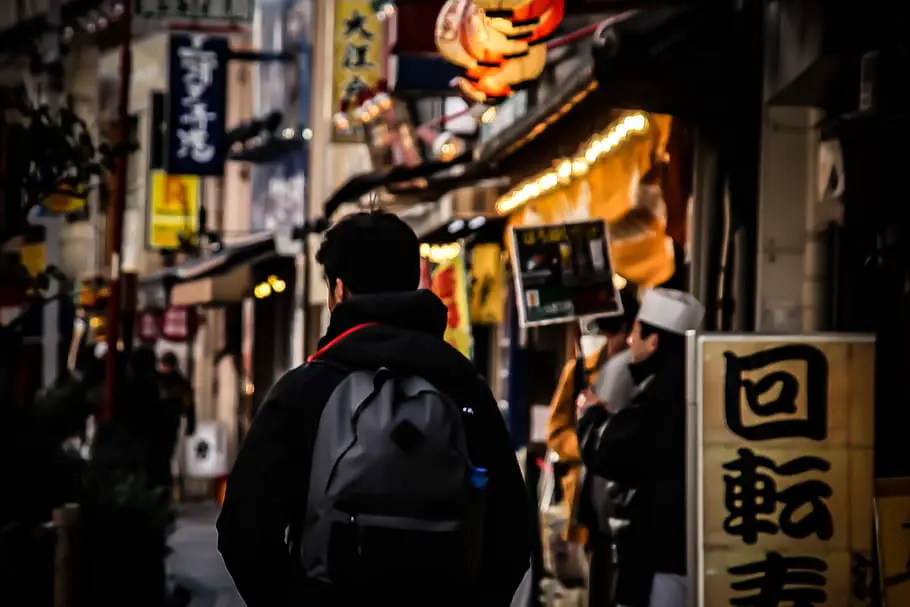
Why Is Japan So Safe? Here Are the Top Reasons
Japan has a reputation for one of the safest countries in the world. You might be wondering about the reasons that make this country so safe—for both visitors and locals. As a frequent Japan traveler and long-time admirer, I’m here to content your curiosity.
Compared to many other tourist-favorite destinations, the chance for a foreigner to be the victim of a violent crime is incredibly low in Japan. Even the 2019 Global Peace Index ranks it as one of the top 10 peaceful countries in the world.
Planning a trip to Japan? Don’t think twice even if you are a female or solo traveler. Almost all places are tourist-friendly, and people there are law-abiding citizens who mind their manners. The top reasons why japan is safe are:
- Low Crime Rate
- Wider Surveillance and More Police
- Strict Gun Laws
- Zero Tolerance for Drugs
- Focus on Crime Prevention
- Legalizing the Home-Sharing Platforms
- Moral Values of Japanese People
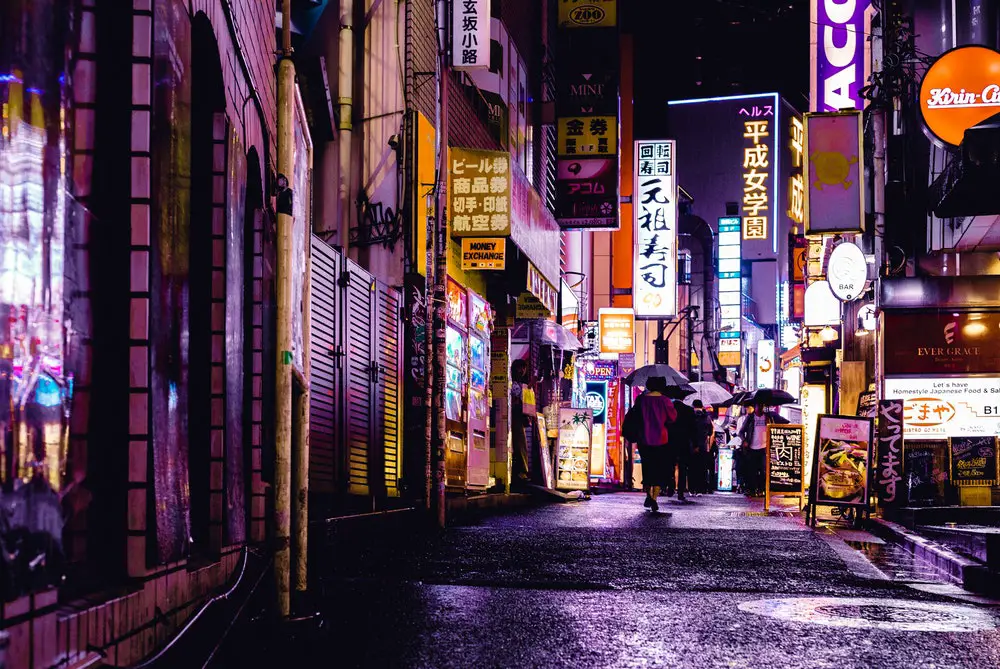
Curious to learn more? Explore the Japanese Culture Guide to explore traditions, society, and everyday life in Japan.
The Top Reasons for Why Japan Is Safe
…safety is certainly not a problem. ..if you don’t feel safe in Japan, then you won’t feel safe anywhere…
lucapal, Lonely Planet
That’s how safe Japan is. Travel enthusiasts in various forums rave about the country’s secure environment, especially for tourists.
However, you need some insights to understand the reasons behind this crime-free state. Many people think that safety is enforced through strict societal norms that basically outcast people if they commit a crime. This is not true.
Low Crime Rate
Japan is officially the 9th most peaceful country in the world, based on the 2019 Global Peace Index, way ahead of the United States and many other European countries. To prepare the list, the organization considers the crime rate, ongoing conflict, poverty, and several other factors.
Violent crimes are almost non-existent in Japan. You can basically go almost anywhere, anytime. Walk a street in the middle of the night without the fear of getting attacked or robbed.

A statistic of the country’s crime rate makes it clear that the number has gradually declined to the first half of 2019. The figures were the lowest since the post World War II era, and 2019 was the fifth consecutive year to experience the downswing.
Compared to the total recorded 363,846 crimes in 2018, the year 2019 had experienced an around 9% drop. It was the highest drop since the number reached a peak of 2.85 million in 2002 after World War II.
According to a Japan Times report, the numbers in all major crime categories, including robberies, thefts, assaults, and murders, were dropped during the January-June period in 2019.
If you compared the crime rates on a global scale, Japan grabs the penultimate position in the 2019 Crime Index by Country with a 13.73 Crime Index and 86.27 Safety Index.
These statistics undoubtedly prove that everywhere across Japan is quite safe either for a short or long trip.
You can walk around day or night without any worries of crimes, including violent crimes, petty theft, etc. It is not that crimes don’t occur, but they are very rare.
SammyFD, Tripadvisor
Highly Secure for Solo Female Travelers
The safety of female travelers, especially when they touring alone, is a concern all across the world. But not in Japan. In this country, female travelers can feel comfortable when hiking in a solitary trail, using public transport, and walking the streets alone at night.
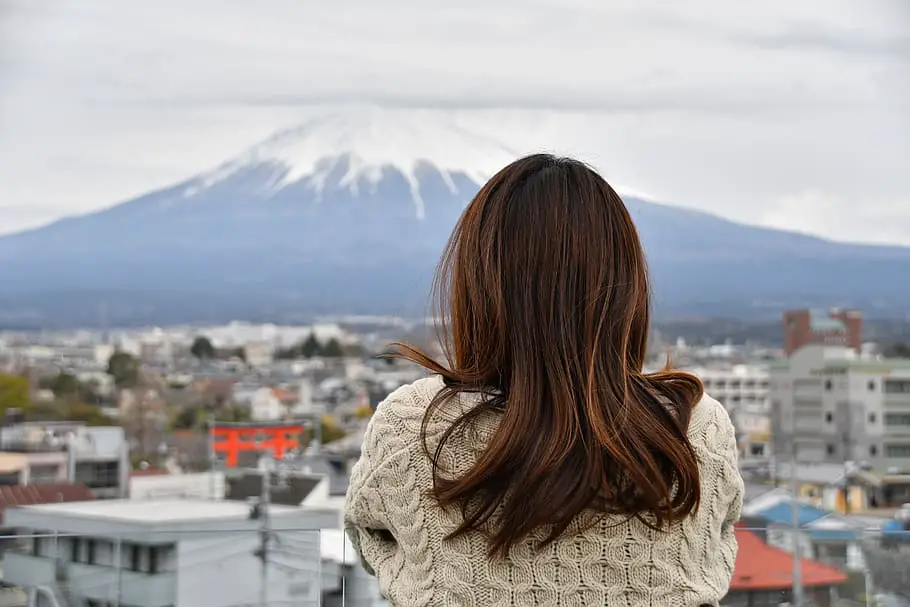
Plenty of women in various travel forums vouch for the safe environment in Japan. For example, one person said that she had traveled the country and a few times and never felt unsafe:
Like many women, I mostly travel solo. I’ve been to Japan a few times and found it very safe. Some good advice above – avoid bars with touts, don’t get stupidly drunk, and give Roppongi nightlife a miss (the art museums during the day are great though).
Selsy, Tripadvisor
Taking the words of Selsy, you should apply a bit of common sense when exploring a foreign country as a single woman. You should avoid sleazy bars and suspicious people to avoid drink spiking dangers and other common hassles.
Catcalling or verbal harassment on the streets is quite rare. However, chikan or “non-consensual groping” in a crowded place, especially on trains, could be an issue sometimes. You are highly unlikely to face this as a tourist, but taking women-only train carriages will eliminate the possibility completely.
General Safety Cautions
No country in the world is 100% safe. So, you may face a little inconvenience here and there, such as pick-pocketing in some big cities and petty thefts in packed tourist places. While you are unlikely to become the victim of a violent crime, some common travel safety measures will keep you safe from minor crimes too.
You can avoid some petty crimes by simply being vigilant. For example, pick-pocketing mainly happens in the busiest areas and the thugs mostly target the tourists. But you can easily avoid being a victim just by being watchful and taking care of your valuables.
Having common sense and applying logic is crucial to enjoying the nightlife without any untoward incident. There are tons of bars with cheap drinks, popping crowd, and music as loud and hell. The places are safe for hanging loose, chat with locals, and be merry.

But avoid the squalid bars at all costs, particularly when you are alone. The safest practice would be to asking your hotel for nightlife recommendations. Also, follow these safety rules:
- Steer clear of people who make you unconformable
- Avoid people who appear to be aggressive or pushy.
- Don’t accept drinks from strangers.
- Never drink to the point of making yourself unaware of the surroundings.
- Never leave your drink unattended.
Wider Surveillance and More Police
Japan is not the only surveillance society in the world, but it has undoubtedly reaped the rewards of widening supervision.
Since the government’s strategy of tackling crimes by spreading the use of security cameras and increasing the number of police, the country has experienced a gradual decline in crime numbers.
The authority has installed numerous new surveillance cameras with the upcoming 2020 Summer Olympics in Tokyo (postponed until summer 2021) in mind.
Similarly, the strategical placement of Koban or “small police stations” across the cities and small neighborhoods has improved the overall law and order situation. These stations are merely a single room equipped with a desk and a few seating options.

However, the all-pervasive presence of Kobans has made people feel safer. You can ask the police there for any kind of help and report suspicious activities. People willingly turn in lost items in these stations. For this reason, you are more likely to get your lost wallet or personal items back in Japan.
These police boxes are distributed like a grid in various areas. In populated cities like Tokyo and Osaka, you are likely to find them at every 1.5 kilometers of distance. When you call the emergency number, the first dispatchers will be from the nearest Koban.
Strict Gun Laws
When gun violence is a headache for many countries, Japan has totally curbed this threat with strict gun laws. You must feel relieved knowing that the gun deaths here rarely cross 10 per year despite having a population of 127 million.
The goals of Japanese gun laws are to prevent unfitted people from accessing firearms and controlling the use of guns, which they have successfully achieved.

Japanese people have to undergo tests, extensive screening, and mental health checkups for owning a gun. A person with a history of substance abuse or criminal records won’t be eligible. However, it’s rare for Japanese people to want to own firearms. This together with a less tolerant approach towards knife crimes have made this country a safer place.
When you are out in a public place in Japan, there’s almost zero chance that a lunatic will open fire on people. Getting caught with a knife or any other deadly weapon will warrant a custodial sentence.
Zero Tolerance for Drugs
It’s undeniable that many illegal activities, particularly petty street crimes, in any country stem out from substance abuse. But Japan has become able to keep these offenses under control by taking a ‘zero-tolerance’ policy against any kind of illegal drugs.
Penalties for carrying any crime-related drugs and drink-driving offenses are strict. You can be fined or have jail time for these offenses.
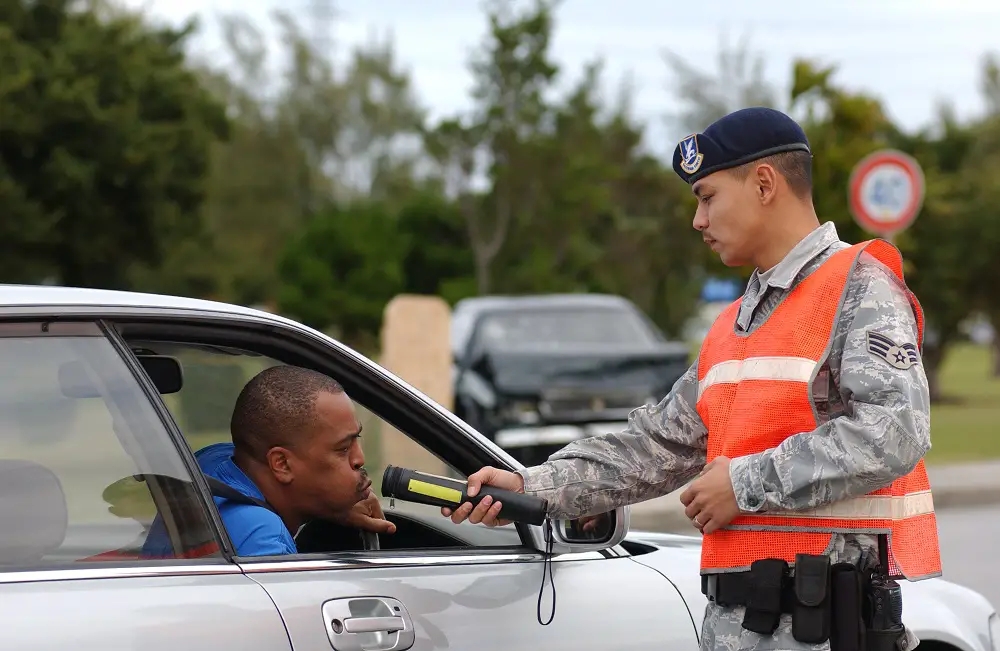
Japan’s definitions of illegal drugs differ greatly from other countries, so some common over-the-counter medicines can also fall under the banned category. Check this list of prohibited substances by the country’s Ministry of Health, Labour and Welfare.
In the past, the Japanese authority did not allow celebrities like Paul McCartney, Paris Hilton, and the Rolling Stones band to enter the country for their history of drug abuse.
The Japanese people also don’t respect media personalities with drug convictions. For example, Japanese performers or artists have to apologize publicly on national television if they get caught using drugs.
Similarly, laws are harsh for driving under the influence of alcohol, driving while drinking, or allowing someone else to drink when you are driving. If you drive your car to a bar and get drunk, the legal way to get home is calling a daikou or “a special taxi service”. You have to ride in the taxi while an extra driver will bring your car home.
You cannot even smoke outside the designated zones in many areas in big cities. Getting caught by the police will lead to paying a fine on the spot. In fact, law enforcement authorities also run random drug testing on bar patrons to make sure that everyone follows the laws.
Focus on Crime Prevention
When it comes to preventing crimes and establishing law and order, Japan is proactive instead of reactive. The government focuses on removing the elements that may encourage a person to commit crimes.
To ensure the paramount safety of its citizens and visitors, Japan has taken these measures:
ATMs inside a precinct.
Drive-through ATMs are convenient but instigate crimes, especially in the nighttime. So, the authority has transferred these easy targets from the roadside and open places into inside buildings and banks. Inside that those enclosures, some ATMs are placed in a secure lockable booth for extra security.

Yes, accessing them is slightly less convenient than the ‘hole-in-the-wall’ style teller machines, but they provide more privacy and a secure environment for cash withdrawal.
More staff members for convenience stores.
Small shops that stay open 24/7 are often a crime magnet. It’s easy to rob these places in other countries because these are mostly one-staff outlets, particularly during the night shifts.
However, this is not the case in Japan. Whether the store is in a gas station, transport hub, or alongside a busy road, it always has at least two employees working a shift. If you see only one worker at the counter, another member will definitely be there inside the store or in the adjoining office.
Employing an extra member of staff costs more, but this practice makes the environment safer for both employees and customers.
More Security for businesses and properties.
Just like the convenience stores, businesses also keep a high presence of security personnel. These security people do two things: helping customers given the latter needs it and staying alert for unusual behaviors or potential threats.
You will see parking lot attendants in places where they don’t deem necessary. But their presence discourages outlaws to rob people in the parking lot and breaking off into cars.

Similarly, there are security guards in banks and other establishments. They may also serve as customer service, helping customers with their queries or pointing in the right direction to get their work done. But their principal duty is to look out for suspicious activities.
Another thing that keeps neighborhoods and businesses safe is Japan’s zoning laws. Inclusive laws allow the coexistence of businesses and residential houses. For example, there could be a convenience store right beside a family home. This creates a noisy environment for the residents of a neighborhood but the presence of people till late at night deters criminal activities.
Legalizing the Home-Sharing Platforms
Airbnb and other lodging proving services operate in a gray area in much of the world, allowing scammers to exploit the system and extort money from naïve people.
Many times the guests find that the rented apartment bears no resemblance to the one displayed on the listing or the host canceling the booking last minute to list it again for more money. There are many illegal listings too that the tenants operate without the permission of the house owner.
As tourists are the most vulnerable to fall for these scams, the Japanese government brought all home-sharing platforms including Airbnb under legal coverage.
The law covering minpaku or “vacation rental”, which means renting out living space to people as an alternative to a hotel, was passed in June 2018.

The laws demand the hosts to register their homes with the respective authority and publish the license number on the listing page. These listings also go through various safety checks and meet several criteria set by the central and local authorities.
As Airbnb and other platforms don’t allow the non-compliant listings, tourists can stay relaxed knowing that their rented listing is legit.
Moral Values of Japanese People
This is more of a cultural impact than the result of enforced laws. In most Japanese areas, locals and tourists can walk around at night without fearing for their life. Two reasons for this are the upbringing of Japanese children and a shared sense of social values.
Japanese kids get the lessons of moral rights and wrongs from a young age. While growing up, these values become a part of their innate nature. They don’t involve in crimes because they are not supposed to, and it’s morally wrong.
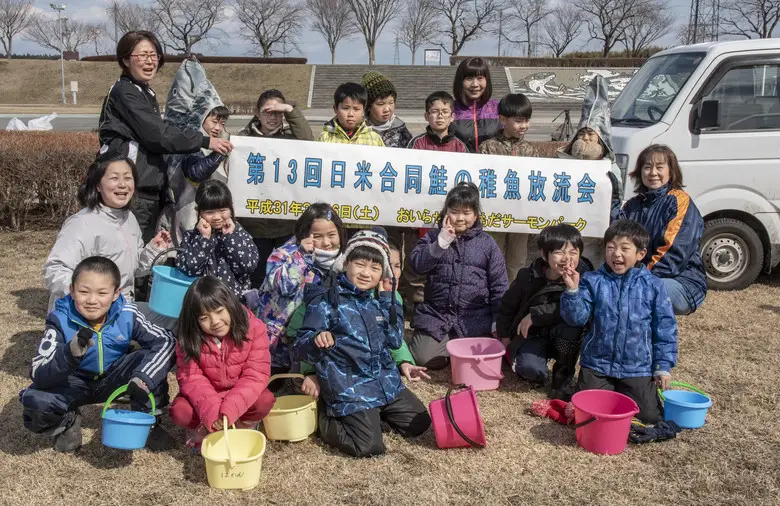
Also, a homogeneous cultural and value system makes Japanese people trust and care for each other. For these reasons, petty thefts are extremely rare in this country.
You can leave your things outside when going to the bathroom and these will still be there when you come back. If you forget something on public transport, it will turn up in the relevant Lost and Found section.
Related Questions
Q: Does Japan as an emergency number like 911?
A: Yes. To call the police, dial 110 and the telephone number for ambulance, fire incidents, and emergency rescue is 119.
Conclusion
Japan is safe because the country has strict laws and law-abiding citizens who rear moral values and a sense of orderliness. As a visitor, you will never face a problem if you keep on the straight and narrow.



